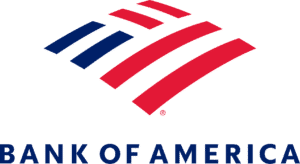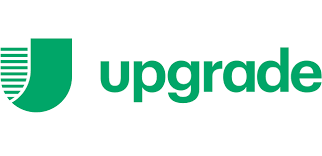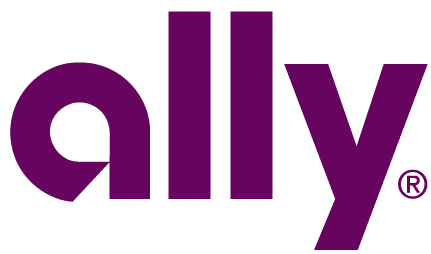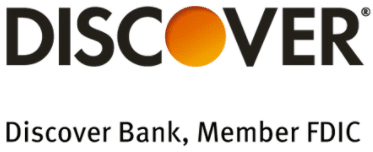If you’re a student (or parent) looking for a place to park your money without excessive fees or unrealistic balance requirements, check out the impressive array of low-cost, low-balance checking accounts available to students.
Some actively restrict membership to younger individuals, most often those between 17 and 23 or 24 years old. But others are not restricted based on age or student status — meaning you can hold onto them as long as you wish after graduating.
The Best Student Checking Accounts
These are among the best FDIC-insured student checking accounts for U.S. bank and credit union account holders.
Most have low minimum deposit requirements and an impressive array of mobile-friendly capabilities, such as bill pay and peer-to-peer (P2P) transfer apps.
Best Overall: Bank of America Advantage Banking – $100 Bonus Offer

See offer page for more details.
Bank of America Advantage Banking is a checking account with three settings: Advantage SafeBalance, Advantage Plus, and Advantage Relationship.
Pick the one that works for you right now, and if your life changes — say, you graduate from college and land a decent-paying job — you can switch to another setting that fits the new you.
All Bank of America Advantage Banking settings include:
- Easy, Anytime Access. Visit Bank of America at thousands of financial centers and ATMs.
- 24/7 Security. Total Security Protection® and fraud monitoring. Secure sign-in, card locking features, and more.
- Convenient Ways to Pay. Use your debit card or digital wallet.
- Smart Money Management Tools. Set custom alerts and savings goals. Get cash-back deals and rewards customized for you.
- Unauthorized Transactions. Bank of America’s $0 Liability Guarantee means you’re not liable for unauthorized transactions made using your consumer debit card, as long as you report them promptly.
- Debit Card Controls. Temporarily lock a misplaced card quickly and easily to help prevent unauthorized use.
- Custom Alerts. Know now and react fast to important account changes. You can set custom alerts via email or text for things like a low balance, pending deposit, and upcoming bills.
Plus, Advantage SafeBalance charges no monthly maintenance fee for Students under 25 enrolled in school or an educational or vocational program.
Bank of America, N.A. member FDIC.
Open an Account with Bank of America
Best Account Opening Bonus: Chase College Checking
This offer is no longer available.

The Chase College Checking Account is a fantastic choice for students ready to manage their money without help from their parents. And it has a great account opening bonus to boot.
If you’re a new Chase customer, you may qualify for a $100 account opening bonus after opening an account and completing qualifying activities.
Additional features:
- Designed for students between 17 and 24 years of age
- Waives monthly maintenance fees (or monthly service fees, typically $6 per month) for college students up to five consecutive years
- No minimum deposit or ongoing balance requirement
- Full mobile functionality in the Chase Mobile app
- Instant P2P transfers with Zelle
- Access to 16,000 Chase ATMs
Best for Cash Back: Rewards Checking via Upgrade
Rewards Checking via Upgrade4 has a great cash-back program. Here’s how it works:
- Get 2% cash back with eligible debit card purchases of common everyday items, including purchases at convenience stores, drugstores, restaurants, bars, utility bills, and certain monthly subscriptions2
- 2% cash back is capped at $500 in rewards per year
- Get 1% cash back with all other eligible purchases
Additional features:
- No account fees — no annual fees, overdraft fees, transfer fees, or ATM fees (except those charged by third-party ATM owners)1
- Rewards Checking customers can receive discounts on loans and cards through Upgrade3
- FDIC Insured up to $250,000 through Cross River Bank, Member FDIC
1 There are no account fees, overdraft fees, annual fees, or transfer fees associated with Rewards Checking accounts. Rewards Checking charges no ATM fees, but third-party institutions may charge you a fee if you use their ATM/network or if you use your Upgrade VISA® Debit Card internationally. Upgrade will rebate any ATM fee charged by another institution for debit card withdrawals in the United States, up to five times per calendar month. To be eligible to receive third-party ATM fee rebates in any calendar month for eligible ATM withdrawals made during that month, customers must have (i) an open Rewards Checking account and (ii) either maintained an average daily balance in their account of at least $2,500 in the prior calendar month or made direct deposits into their account totaling at least $1,000 during the prior calendar month. As a courtesy to new customers, Upgrade will provide third-party ATM fee rebates for up to the first 2 calendar months after account opening regardless of account activity. Some limitations apply and terms and conditions may change. Please refer to the applicable Cross River Bank Deposit Account Agreement and Upgrade VISA® Debit Card Agreement and Disclosures for more information.
2 Rewards Checking customers accrue 2% cash back on common everyday expenses at convenience stores, drugstores, restaurants, and bars – including deliveries – and gas stations, as well as recurring payments on utilities and monthly subscriptions including phone, cable, TV and other streaming services, and 1% cash back on all other debit card charges. 2% cash back is limited to $500 in rewards per calendar year; after $500, customers accrue 1% cash back on all eligible debit card charges for the remainder of the year. Some limitations apply. Please refer to the applicable Upgrade VISA® Debit Card Agreement and Disclosures for more information.
3 The interest rate on a new loan or credit line through Upgrade may be up to 20% lower than would otherwise be applicable without this discount, as long as you have an active Rewards Checking Account. Additional terms may apply. Please refer to the applicable Truth-in-Lending Disclosure and Loan Agreement.
4 Upgrade is a financial technology company, not a bank. Rewards Checking services provided by Cross River Bank, Member FDIC. Upgrade VISA® Debit Cards issued by Cross River Bank, Member FDIC, pursuant to a license from Visa U.S.A. Inc. Personal Loans made by Upgrade’s bank partners. Personal Credit Lines are issued by Cross River Bank, a New Jersey State Chartered Commercial Bank, Member FDIC, Equal Housing Lender. The Upgrade Card is issued by Sutton Bank, Member FDIC, pursuant to a license from Visa U.S.A. Inc.
Best for Working Students: Chime Deposit Account
Chime is a user-friendly money management app that offers an early payday option for eligible deposit account (checking) customers whose employers file with the Federal Reserve to begin the direct deposit process.
If you’re a college student working part-time to make ends meet while in school, that’s doubtless a welcome perk.
Also not to be missed: an automatic savings feature that instantly rounds up the change on every debit card transaction and sets the difference aside for a rainy day.
Additional features:
- APY on all eligible balances
- No monthly fees
- More than 60,000 fee-free ATMs
- Up to $200 in overdraft protection for eligible users
Chime is a financial technology company, not a bank. Banking services provided by, and debit card issued by, The Bancorp Bank or Stride Bank, N.A.; Members FDIC.
Best for Mobile Banking: GO2bank
GO2bank is a consumer-friendly online bank account that’s perfect for students. To avoid the $5 monthly maintenance fee, simply set up eligible direct deposit.
Moving forward, enjoy clutch mobile banking features like:
- Earn up to 7% cash back on eligible electronic gift card purchases in the app1
- Free bill pay (including mailed checks) in the app
- Mobile check deposit
- Easy-to-use ATM finder
- Move money from a linked bank account instantly
- Lock and unlock your debit card with a tap
Additional features:
- Get paid up to two days early with ASAP Direct DepositTM 3
- 2.50% APY2 on savings up to $5,000
- Deposit cash at participating retail stores, subject to fees and deposit limits that may apply
- Enjoy up to $200 in overdraft protection with opt in and eligible direct deposit
1Active GO2bank account required to receive an eGift Card. eGift Card merchants subject to change
2GO2bank, Member FDIC. Interest paid quarterly on the average daily balance of savings during the quarter up to a $5,000 balance and if the account is in good standing. 2.50% Annual Percentage Yield (APY) as of January 2021. APY may change before or after you open an account. The average national savings account interest rate of 0.05% is determined by the FDIC as of 12/14/20. Visit https://www.fdic.gov/regulations/resources/rates/ to learn more. Fees on your primary deposit account may reduce earnings on your savings account.
3Direct deposit early availability depends on timing of payor’s payment instructions and fraud prevention restrictions may apply. As such, the availability or timing of early direct deposit may vary from pay period to pay period. The name and Social Security number on file with your employer or benefits provider must match your GO2bank account exactly or we will decline your deposit.
Best for Learning About Money Management: Capital One 360 MONEY
Capital One 360’s MONEY account is a custodial accounts for kids under 18 that sticks with you into adulthood. If you’re looking to start your financial journey off early and learn lifelong money management habits, it’s far and away the best option on this list.
Additional features:
- Spendable and Set Aside categories make it easy to budget smart and reinforce sound financial behaviors
- Solid yields on all eligible balances
- No fees and no minimums
- Free debit card for use at more than 70,000 ATMs nationwide
- Customizable parental controls for minor children
Open an Account with Capital One 360
Best for Yield: Ally Interest Checking
Like some of the other contenders on this list, the Ally Bank Interest Checking account isn’t strictly a student checking account. But its two-tiered yield scheme is tops among accounts open to students:
- 0.10% APY on balances under $15,000
- 0.25% APY on balances of $15,000 or greater.
Plus, with no monthly maintenance fees, no minimums, thousands of in-network ATMs, and a decent yield on all balances, it’s an excellent starter account for students who don’t anticipate banking in-branch anytime soon.
Open an Account with Ally Bank
Best for Comprehensive Money Management: PNC Virtual Wallet Student
PNC Virtual Wallet Student is a student-friendly version of PNC’s popular Virtual Wallet package. It combines three subaccounts to help younger people manage short- and long-term financial needs in one place:
- Spend, a primary checking account for day-to-day money management needs
- Reserve, a cash set-aside for shorter-term financial goals and emergencies
- Growth, a long-term savings account with a variable yield
The PNC Virtual Wallet Student student bank account package adds some benefits the “adult” PNC Virtual Wallet package lacks, including:
- No monthly service charge
- One complimentary incoming or outgoing domestic wire each month
- One courtesy overdraft per month.
Plus, new sign-ups are automatically enrolled in electronic statements and online banking.
PNC Virtual Wallet Student upgrades to PNC Virtual Wallet after six years, at which time it’s subject to Virtual Wallet features and fees then in effect.
Best for Cash Back: Discover Cashback Debit
The Discover Bank Cashback Debit Account is a student-friendly checking account that delivers an impressive cash-back punch. Specifically, that’s 1% cash back on up to $3,000 in eligible purchases each month.
Discover Cashback Debit is also very light on fees, with no monthly maintenance fee and no fees for insufficient funds, bank checks, or debit card replacement. That means you get to keep more of your hard-earned cash back.
Additional features:
- Access to a network of around 60,000 fee-free ATMs.
- Lock and unlock your debit card with a tap
- Join as part of the Discover Student Deposits program to get special perks exclusively for students
Open an Account with Discover Bank
Methodology: How We Select the Best Student Checking Accounts
We use several important factors to select the best student checking accounts for our readers. Each relates in some way to the cost, yield, or usefulness of these accounts.
Account Fees
Student checking accounts aren’t known for excessive fees. That wouldn’t be very respectful of students’ meager budgets.
Still, some student checking accounts really go the extra mile to minimize fees. They don’t charge monthly maintenance fees, period, or make it easy to waive those fees with student status.
Minimum Deposit and Balance Requirements
The best student checking accounts have no minimum deposit or ongoing minimum balance requirements. This is a nod to the fact that students often don’t have much to spare.
Account Opening Promotions
There’s nothing quite like qualifying for a bank account opening promotion right out of the gate. Some student checking accounts deliver impressive opening boosts, on the order of $100 or more. Just make sure you can complete any required qualifying activities during the introductory period, if applicable.
Account Yield
In a low-rate environment, even a modest yield gives an account an edge. The best student checking accounts can’t quite match the top savings accounts on the market, but they typically edge out big-bank checking accounts that don’t pay interest.
Age Requirements and Other Eligibility Criteria
Not all student checking accounts limit eligibility to college-age account holders. Some let you in even if you’re heading back to school after a long hiatus or getting a second degree (or continuing your education) after years in the workforce.
Value-Added Features
Some student checking accounts come with additional bells and whistles that increase their appeal and make them better for everyday use. Common examples include automated savings tools, instant P2P transfers, access to thousands of fee-free ATMs, in-app budgeting tools, and joint or custodial account capabilities.
Student Checking Account FAQs
You have questions about checking accounts for college students. We have answers.
Can Anyone Open a Student Checking Account?
Some student checking accounts actively restrict membership to younger individuals, most often those between 17 and 23 or 24 years old.
Others are not restricted based on age or student status — meaning you can hold onto them as long as you wish after graduating. And some offer a clear path to “graduate” to nonstudent accounts without transferring your balances or going through the trouble of reapplying.
What Happens to Your Student Checking Account When You Graduate?
It depends on the bank. Often, you can convert or upgrade your student account to an adult account without reapplying or transferring your balance. If you don’t have that option, you might need to close your student account and transfer the funds to a new checking account with the same bank.
Is There an Age Limit on Your Student Checking Account?
It depends on the bank. Some limit age eligibility to college-age students, typically between 17 and 24. Others are more lenient and allow any adult to have a student account in their name as long as they’re enrolled in a recognized degree or certificate program on at least a part-time basis. (Often, “part-time” means half-time or greater.)
Can Minors Open Student Checking Accounts?
Many banks allow 17-year-olds to open student checking accounts if they’ll turn 18 during the first year of a recognized degree or certificate program. A parent or guardian’s authorization may still be needed for these students, however.
Otherwise, minors generally can’t open student checking accounts on their own. Some banks offer checking accounts for teens or high school students; these are typically custodial or joint accounts shared with a parent.
How to Choose the Best Student Checking Account
Consider how long you plan to use your student checking account. Do you want it to outlast your time as a student, or are you willing to open a new “adult” account after you graduate?
Make sure you understand each account’s stipulations, if any. Student checking accounts usually don’t have lots of hoops to jump through, but you’ll want to make sure you avoid maintenance fees and other potential hidden costs.
Finally, choose an account that fits your lifestyle and spending habits. That might mean sticking with an account from a bank with a dense branch and ATM network near your university. Alternatively, you might opt for an online-only bank that lets you manage your finances from your smartphone — no ATM or branch banking required.
Editorial Disclosure: This content is not provided by the bank advertiser. Opinions expressed here are the author’s alone, not those of the bank advertiser. This site may be compensated through the bank advertiser Affiliate Program.







